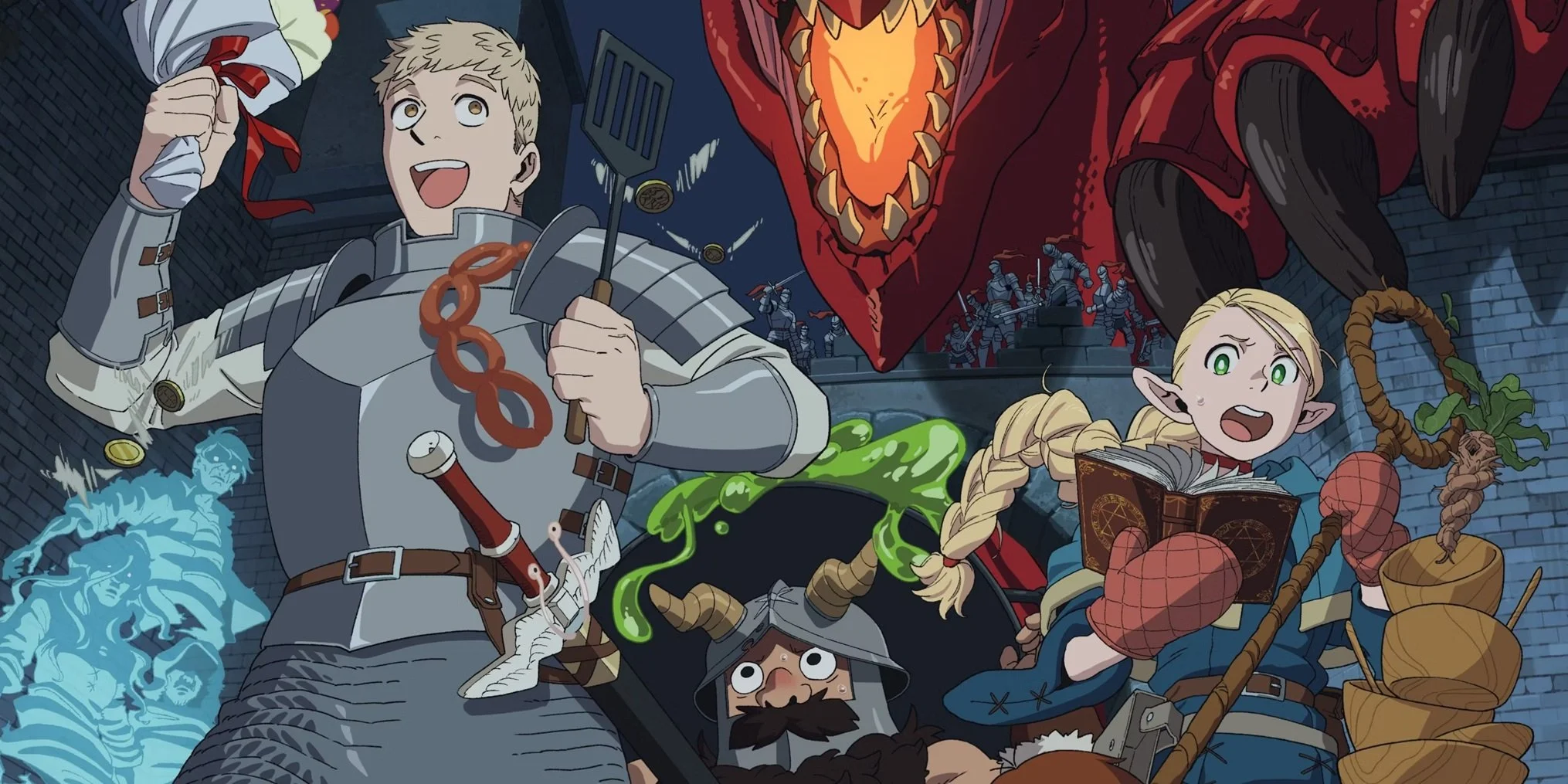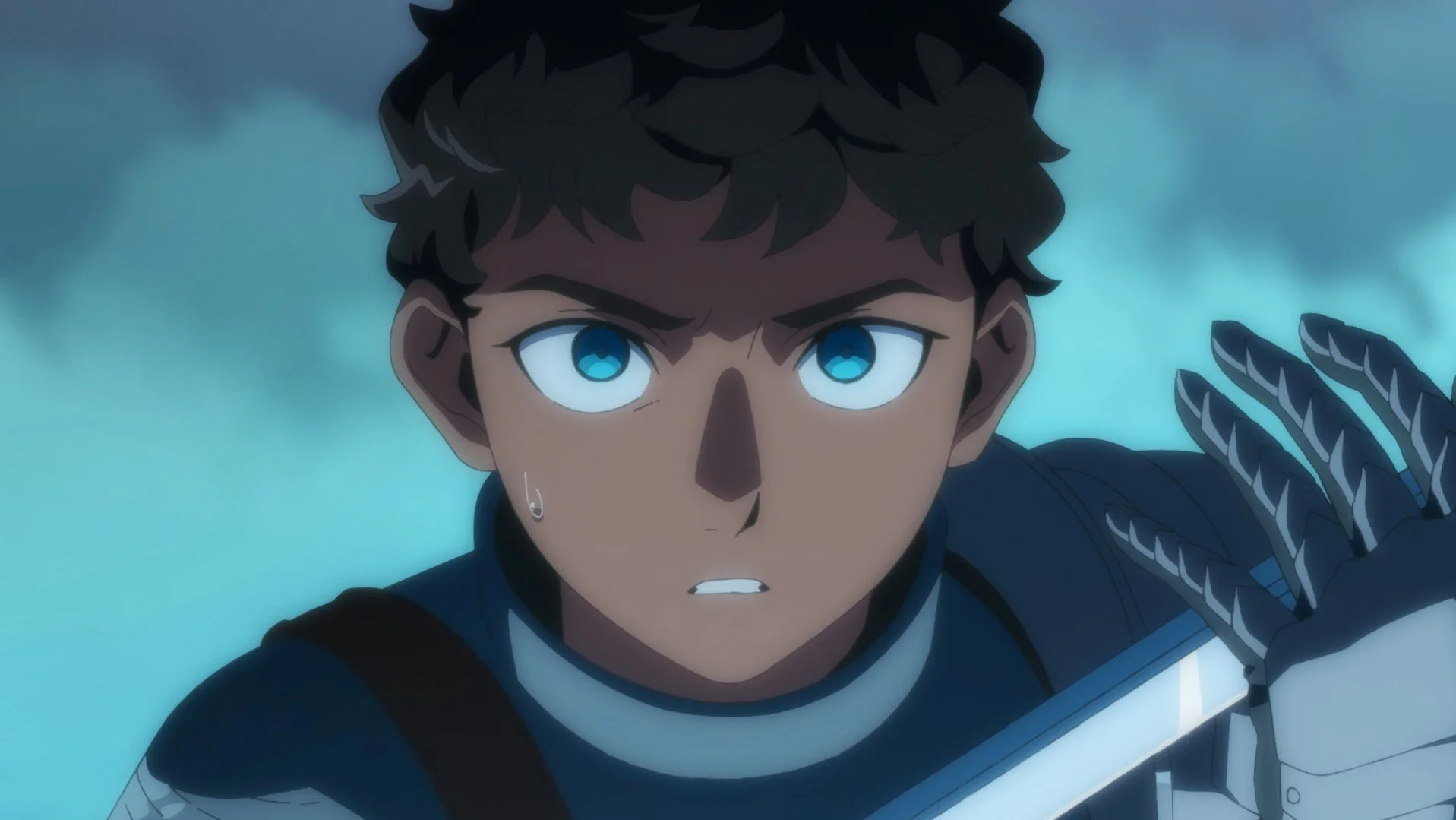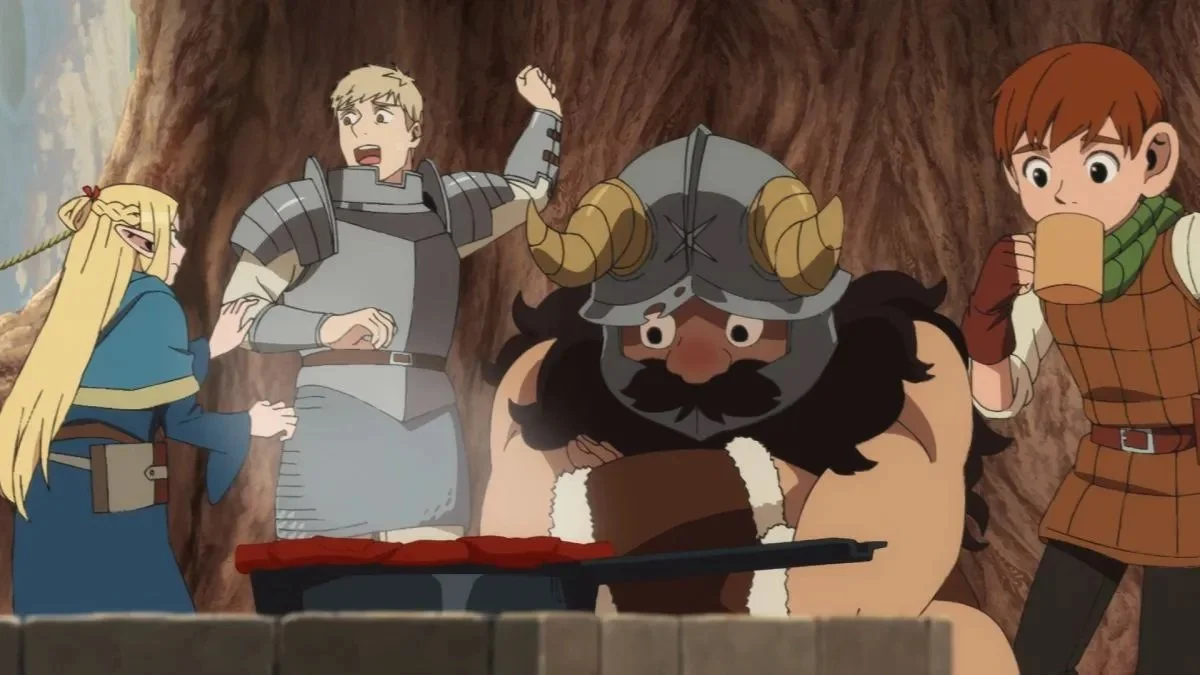Late to the Party: Delicious in Dungeon Review
Image credit: Studio Trigger and Netflix
This review has minor character spoilers but is spoiler-free for the plot.
I might be late to the party when it comes to Delicious in Dungeon, but boy, was this delightful series worth the wait. I had heard many good things about this manga and anime for so long, but for one reason or another, I couldn’t get to it sooner. As a fan of SungWon Cho, I knew he was involved in the project. Still, I just couldn’t pull the trigger on the anime from Studio Trigger. Different praises poured out from the positive portrayal of neurodivergent characters to the sapphic storytelling.
That last one is what got me in the end. A single nine-second clip is what sold me on the series. While I won’t go into details here (as it is a major spoiler), Emily Rudd’s perfect delivery of Marcille’s very queer response got me. It’s the “WHOA HEY” scene that if you know, then you know. Completely out of context, it made me crack up. As a queer woman myself, I found it relatable to a character I didn’t even know. It was that one moment that made me go, “Okay, I’m going to watch this show.”
It was a fantastic choice because Delicious in Dungeon has become one of my favorite series in the last few years.
From the mind of Ryoko Kui, Delicious in Dungeon strikes a fine balance playing within a lot of realms. As someone learning tabletop role playing games for the first time (which you can hear here), it’s easy to see how, on the surface, the series plays within the tropes of Dungeons & Dragons. My love for The Legends of Vox Machina made Delicious in Dungeon feel familiar and easy to step into the vibrant world.
Image Credit: Studio Trigger and Netflix
Because the world has such depth built into it. The show is promoted as a fun fantasy cooking show full of comedy and familiar kinds of characters. Which, yes, it is. However, like how the party gets deeper into the dungeon, the lore builds on itself to be so much more than that. That change really is the 3-episode midseason spectacular that’s all about facing the first major challenge, being the Red Dragon. It was those episodes that gave me wonderful pause and go, “Oh! This is SO much more!” The bones were there the entire time, but the story fleshed out more for several delicious reveals, leading into the back half of Season 1.
No episode is wasted. There is no filler here, as each minor story beat has a purpose. While the main story focuses on the party of Laios, Marcille, Chilchuck, Senshi, and they’re later joined by Izutsumi, the ensemble is vastly important. Party members come and go constantly in this world. However, characters like Kabru, Namari, Shuro, and their companies help flesh out the world even more. They each have their own goals that don’t always align with Laios’ party. It’s easy for friends to turn antagonists and back to friends again. These dynamics keep the story’s drama moving forward as the fans try to figure out what will happen next.
At no point are these characters unlikable. For example, Kabru could so easily be written as a villain, but Kui’s work never skews him in that way. He has an incredibly strong sense of justice and rules, but it’s seeped deeply into his traumatic past. He’s not evil, wanting just as much as Laios to protect the people he loves. It makes the two have fascinating dynamics as they are sometimes at odds while trying to achieve the same long-term goal of keeping those they care for safe.
Image Credit: Studio Trigger and Netflix
The characters are what carries Delicious in Dungeon for me, as they are incredibly fleshed out. These people have flaws. They have biases which can cause tension. One example is how people misunderstand Chilchuck’s race as a half-foot. Members of the party assume he’s a teenager, trying to infantilize him when he is, in fact, a middle-aged man for his race with an ex-wife and kids. It leads to multiple arguments when Chilchuck chooses not to tell them his backstory. They’re not entitled to know about him, and the party doesn’t always listen to his pleas on the matter to stop.
Characters shouldn’t be perfect; flaws like this build their arcs. These characters make mistakes. They hide information from their fellow party members. They don’t always make the right choices, which can have consequences for the story and their relationships in the group. This kind of storytelling is what makes the series such a standout.
The show also avoids toxic and overly-used anime tropes. It was one of the selling points of Delicious in Dungeon that I heard about well before I watched the first episode. It would be so easy to make Marcille the “Girl (TM)” character. In fact, the first couple of episodes are sneaky in that way, making you think that she is. She’s the go-to healer, the one pushing back the most against the “gross monsters,” and plays into those tropes. However, it’s very quick to swerve away from this. Marcille is actually a fighting mage with deep secrets. She’s good at blowing stuff up and bad at healing. The only reason she’s in this position is because of the situation in the opening moments of episode 1. While I haven’t finished reading the manga, and Season 2 was only just recently announced, it’s clear that she’s also queer and in love with Falin. Again, the “WHOA HEY” scene is incredibly telling. I’ll have to wait and see if they get together, but it’s some wonderfully well-written sapphic storytelling.
Image Credit: Studio Trigger and Netflix
She’s never sexualized, either. They love giving Senshi, the burly dwarf man, all the go-to panty shots that are customary in anime. The men are often stripped down to nothing, but it’s never treated as taboo if it’s them or Marcille doing it. The writing recognizes the gender tropes and makes a point to smash the problematic ones.
If I had any qualms about the story overall, I do think the first few episodes are a bit lore-heavy, which slowed down the pace for me. Once the season hit episodes 3 and 4, that’s when it started taking off for me. However, even then, when the plot deepened, I had to go back and rewatch some of the earlier scenes because of how much was thrown at once in the first few episodes. I also hope they flesh out the main villain more. So far in Season 1, he’s a little one-note. We get his backstory told to us, but it’s a basic “power corrupts” story, which is surprisingly dull when everyone else is so intricately written. I’m sure there will be more to him in the long run. However, at this point in Season 1, the baddie is pretty flat.
Delicious in Dungeon was well worth the wait and the hype. This series really is doing something special with its deep lore, fully fleshed-out characters, and fun story. It’s full of so many laughs and excellent performances from the cast and has something to keep people coming back for more. Cook up your favorite meal to Netflix and chill with this series.
Image Credit: Studio Trigger and Netflix












